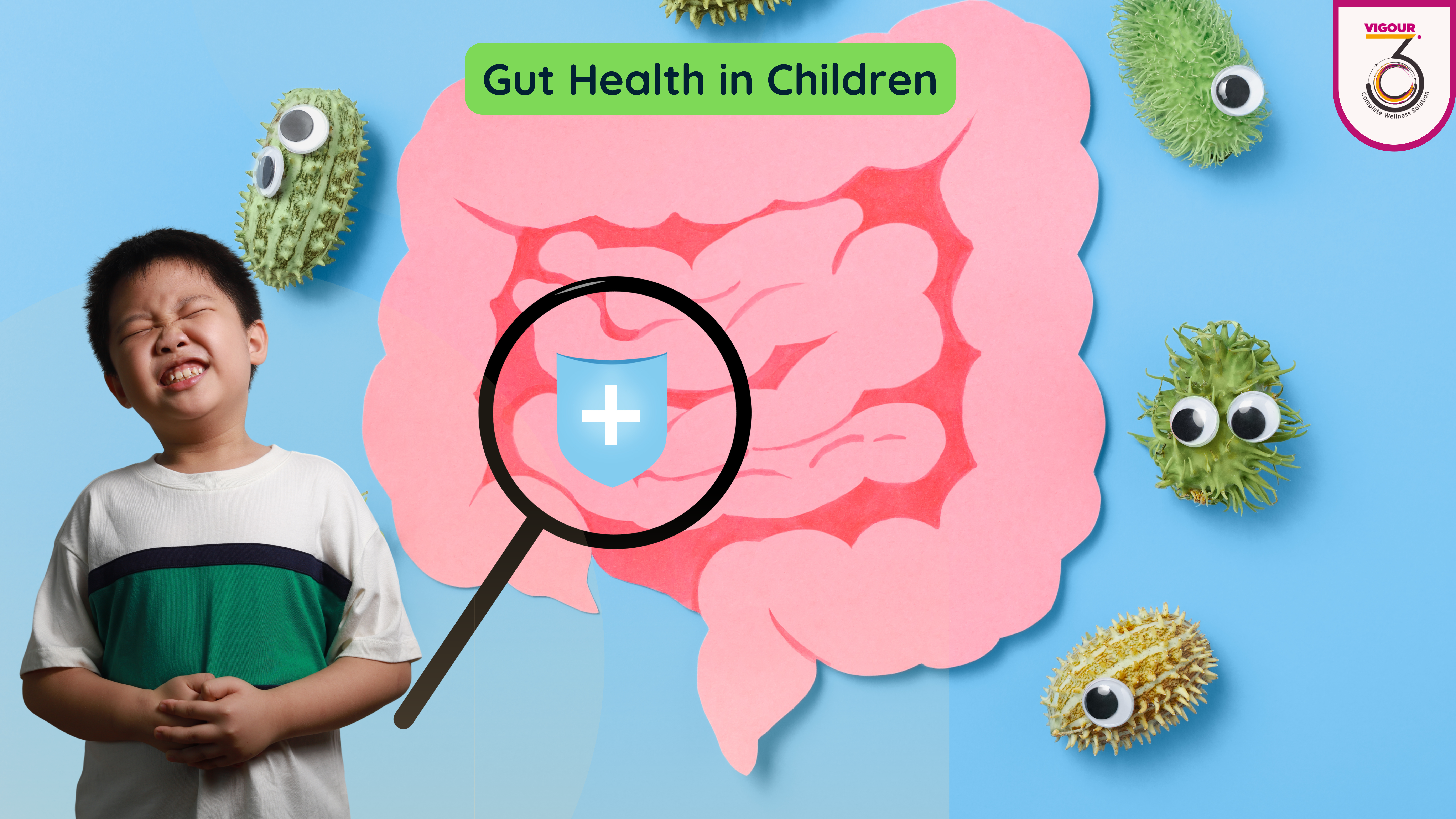
"We are what we eat!" This simple phrase holds deeper meaning when it comes to our health. The gut plays a vital role in breaking down the food we consume, absorbing essential nutrients, and supporting the functioning of various body organs. A healthy gut is the foundation of overall well-being.
The gut microbiome—a complex community of microorganisms residing in the digestive tract—performs several critical functions. As children's bodies and brains are still developing, maintaining good gut health during these formative years is especially important. A balanced gut contributes to stronger immunity, improved focus, better digestion, and even a reduced risk of allergies and chronic conditions.
Gut health refers to the functioning of the gastrointestinal tract and related microorganisms. It begins to develop from foetal life and continues to change over time after birth.
The first 1000 days after birth are crucial for the development of the microbiome. This window lays the foundation for a strong immune system and subsequently good health. At the age of 3, the microbiome remains steady and resembles that of an adult.
The one trillion microorganisms live in synergy to maintain the ecosystem for the digestion of food. A shift in the composition microbiome leads to poor gut health and causes fallout in overall health.
Genetics, diet, antibiotic usage, breastfeeding and other environmental factors are responsible for the composition of the microbiome.
Gut bacteria help in digestion, metabolism, maturation of immunity. Gut health promotes growth and neurocognitive development by absorbing essential nutrients into the body.
70% of your entire immune system resides in your gut. A healthy gut prevents harmful substances and germs from entering the bloodstream through a barrier mechanism. The microbiome in the gut trains the immune system to attack viruses and prevent infection. Developing a healthy gut in children is key to preventing chronic diseases such as diabetes, obesity, autoimmune diseases, asthma, skin diseases, etc.
Gut is closely linked to the central nervous system, as there are millions of nerve cells present in the digestive tract. It impacts the pain perception, mood, appetite, cognition and sleep. Studies have shown that poor gut health leads to irritation and higher chances of anxiety and depression in children.
Here are some tips to improve your child's gut health.
Gut and brain work hand in hand. It is one of the body’s strongest connections and works bidirectional. Vagus nerve, gut microbiome and enteric nervous systems play a major role in the gut-brain axis. Gut and brain exchange signals and contribute to overall health. The gut contains a greater number of nerve cells than any other body part, and hence it is the effective feedback mechanism. The gut-brain connection can control your hunger, cravings, digestion, metabolism, mood, stress, pain, immunity, as well as cognitive functions.
To read more child-health-related articles, follow Vigour360.
Comments (0)